stackconf is happening! Our first day of this year’s stackconf started with a wholesome breakfast in the Melia Hotel in the heart of Berlin. From the dining room we had a great view on the river Spree in the morning hours. After breakfast we were well prepared to listen to the first talks. Our CEO Bernd Erk was very happy to be able to welcome so many guests finally again in person. This wasn’t possible the year before because of reasons we know all too well. After two editions of stackconf online it felt good to meet in person
Check that Point!
One interesting guest was Adrian Reber presenting his project “Checkpoint and Restore in Userspace” (CRIU) which might make live migrations of containers in Kubernetes an easy task in the future. With CRIU you can create checkpoints of containers which contain all data from the memory. In his live demo he went through the process of creating a checkpoint image of a container running in Kubernetes and pushing the checkpoint image to an container registry. Afterwards he created new containers from this image. There is still some manual work involved but the future goal is a “kubectl migrate” command that makes it possible to live migrate containers to other nodes and to even have automatic scheduling of live migrations.
After Mr. Rebers talk it was time for lunch. We gathered at the dining room again and enjoyed our meals. Right after the lunch break it was time for some ignite talks. In one of them Daniel Uhlmann gave a short rundown of the basics of Site Reliability Engineering. For anyone interested, he recommended the free to read book (Site Reliability Engineering).
Philipp Krenn entered the stage after the ignite talkers and made the point (among others) that well structured health checks can still be very useful to detect failures in your systems. It doesn’t always need to be the observability approach.
A Good Corporate Citizen
Dawn Foster spoke about the “Dos” and “Don’ts” of contributing to open source projects as an employee of a corporation. After her talk in title “How to be a Good Corporate Citizen in Open Source” a vivid discussion about the influence of profit-oriented corporations on non-profit open source projects emerged.
The second last talk of the day was held by Sebastian Saemann. He challenged the widespread notion of “Do not run stateful applications in Kubernetes” by introducing the audience to Vitess – “a database clustering system for horizontal scaling of MySQL“. Mr. Saemann pointed out many advantages of running your MySQL databases in a Kubernetes Cluster with the help of the Vitess-Operator. In a live demo he also showed how easy it is to move a table from one database to a new database with zero downtime of the application.
Day 1 of stackconf will end with the evening event in the splendid Capitol Yard Golf Lounge. After dinner the attendees will let the evening come to an end with some drinks. I am already looking forward to it! As much as I am looking forward to Day 2. See you all tomorrow!

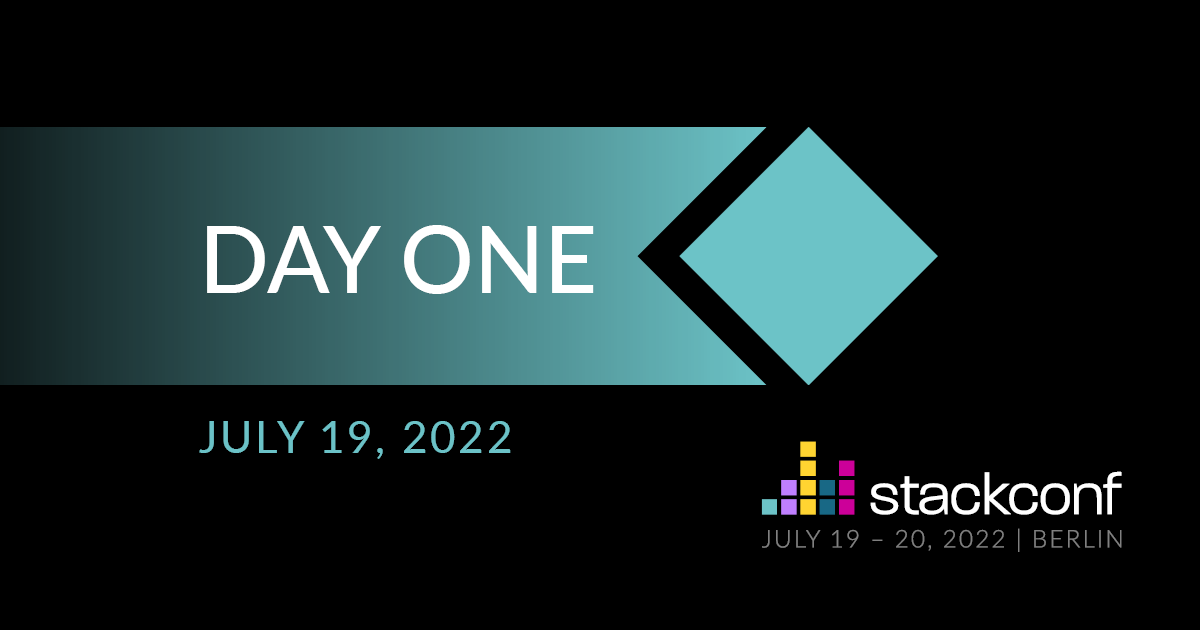
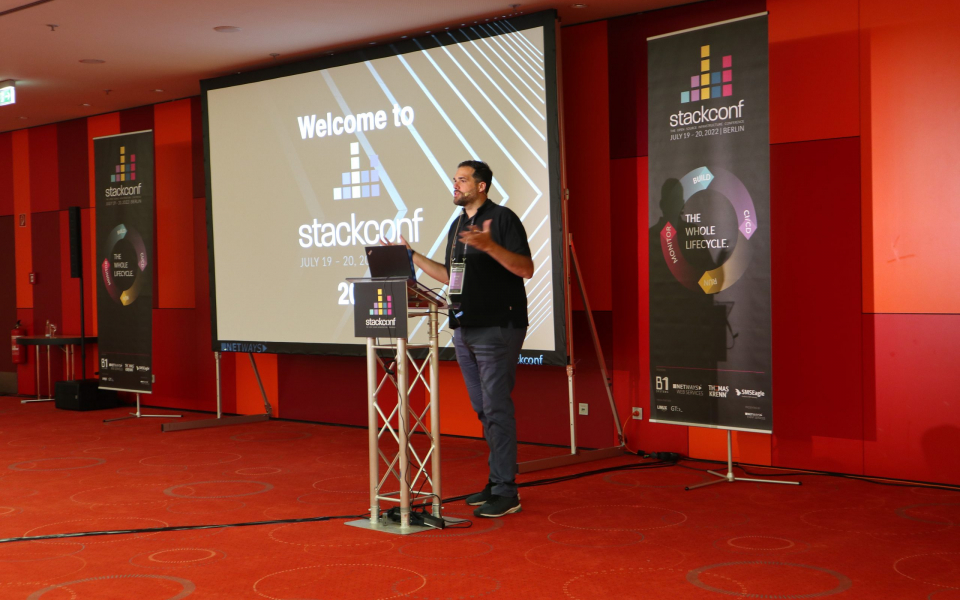
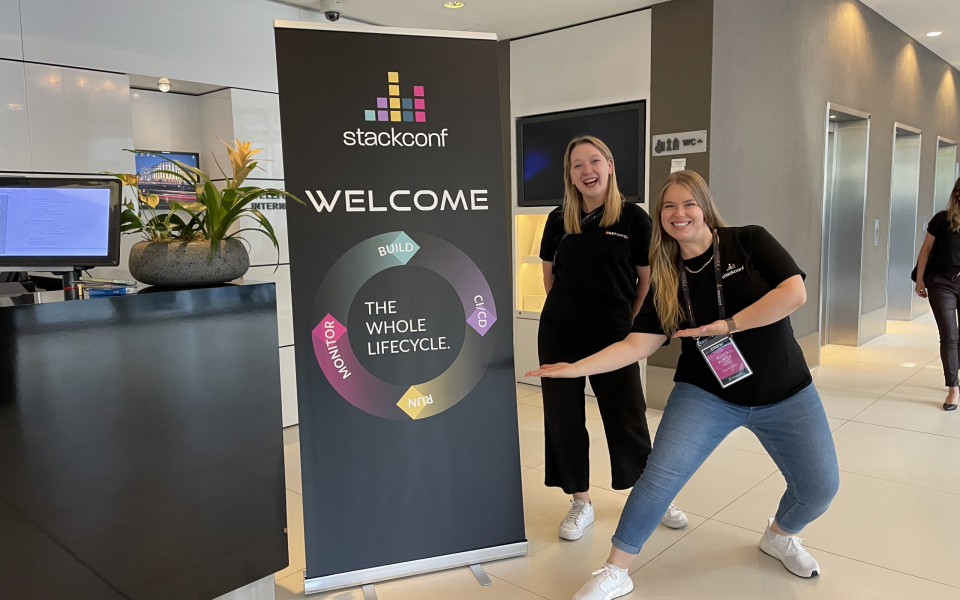
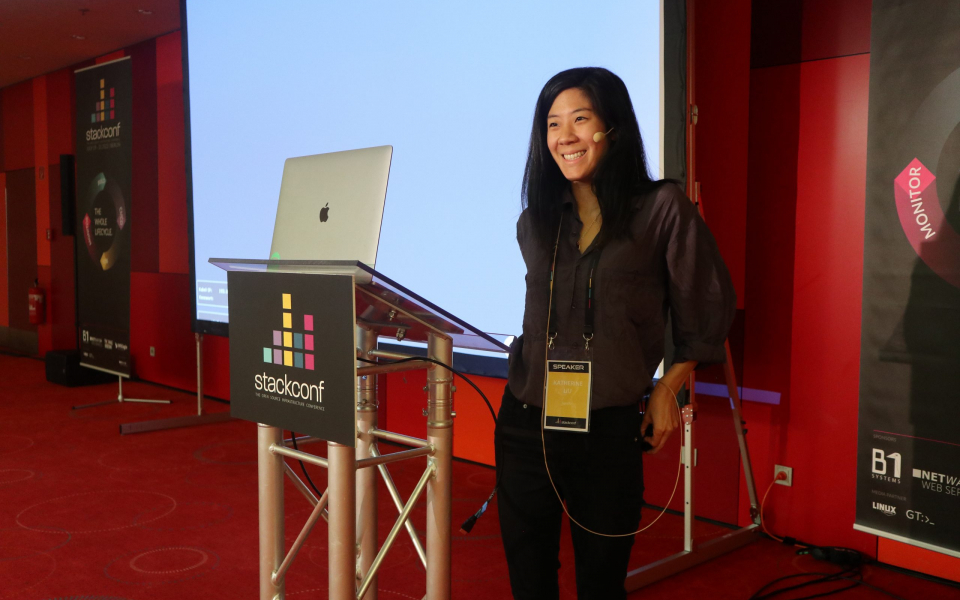
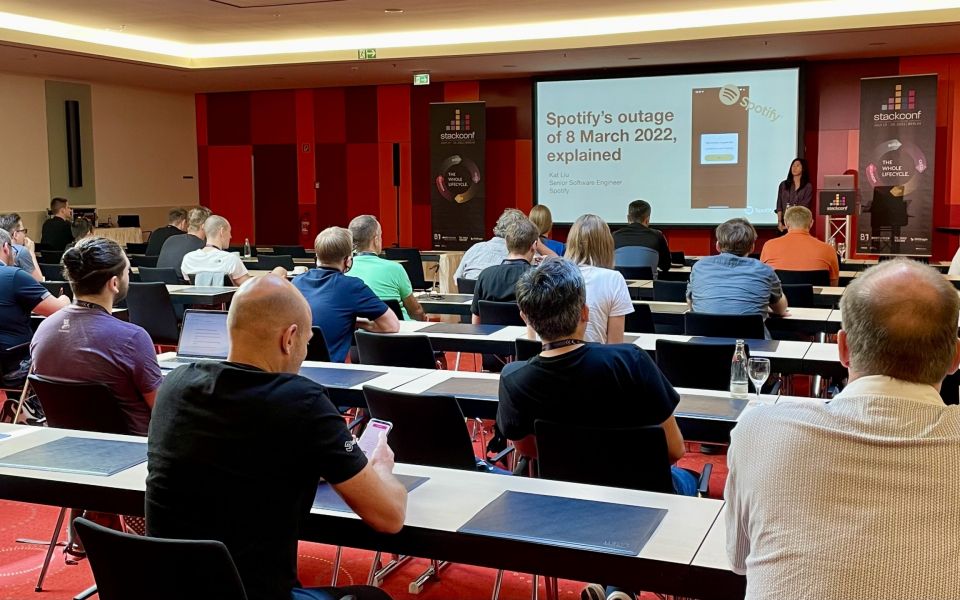
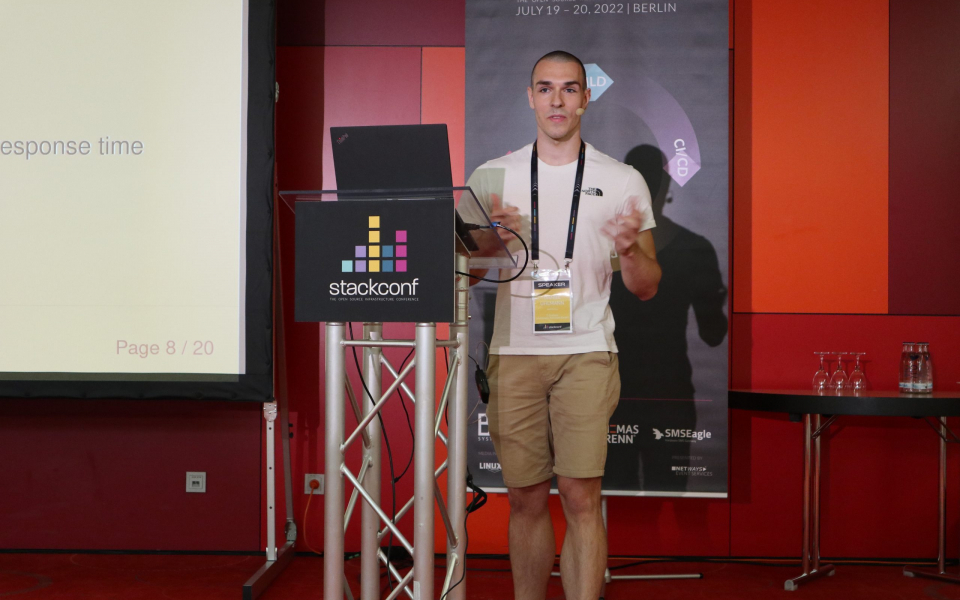

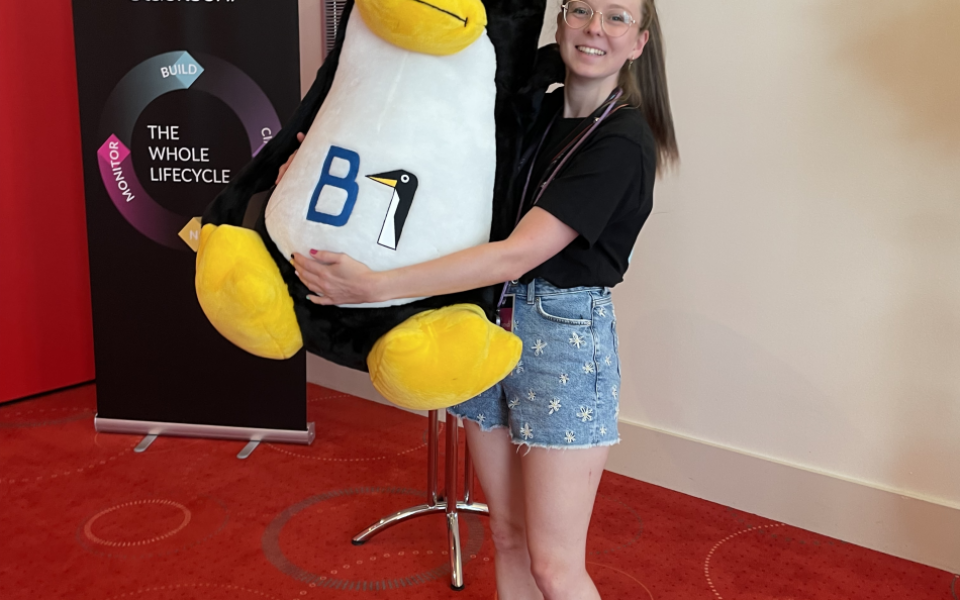
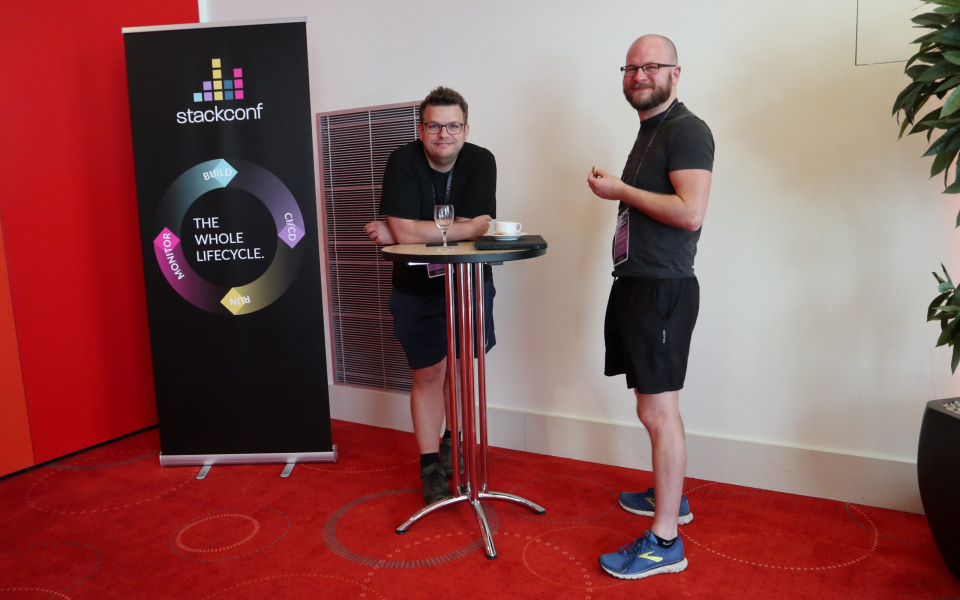
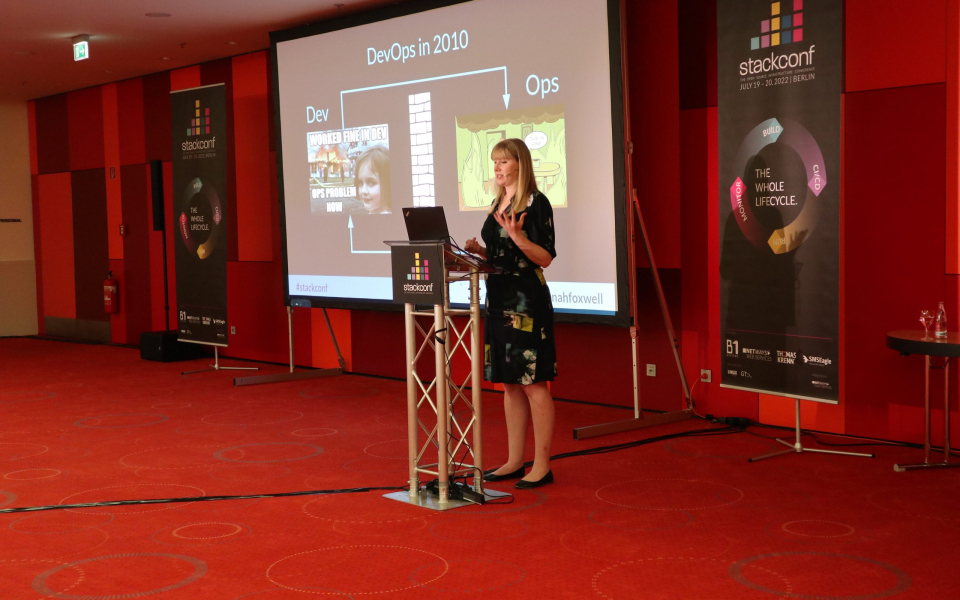
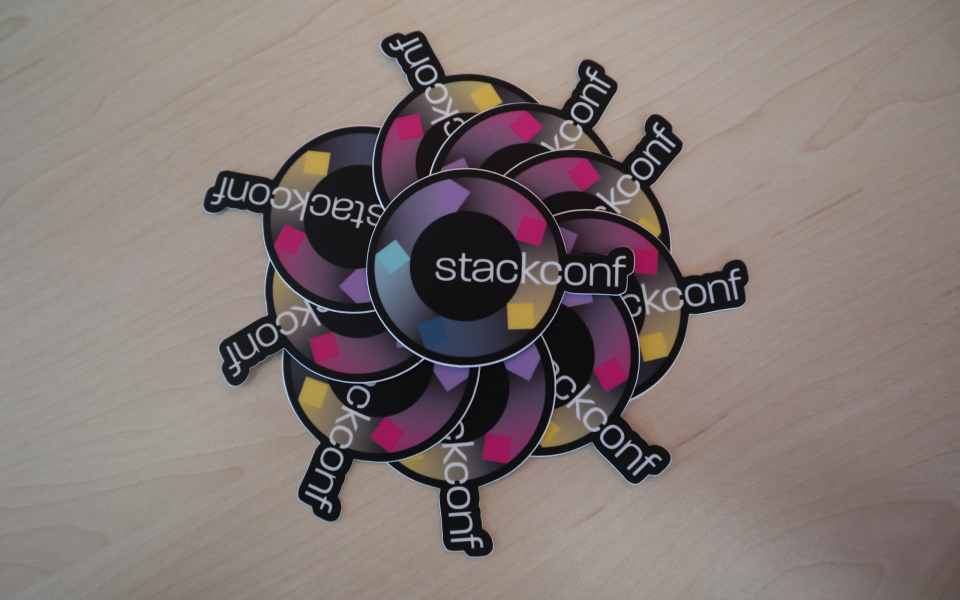
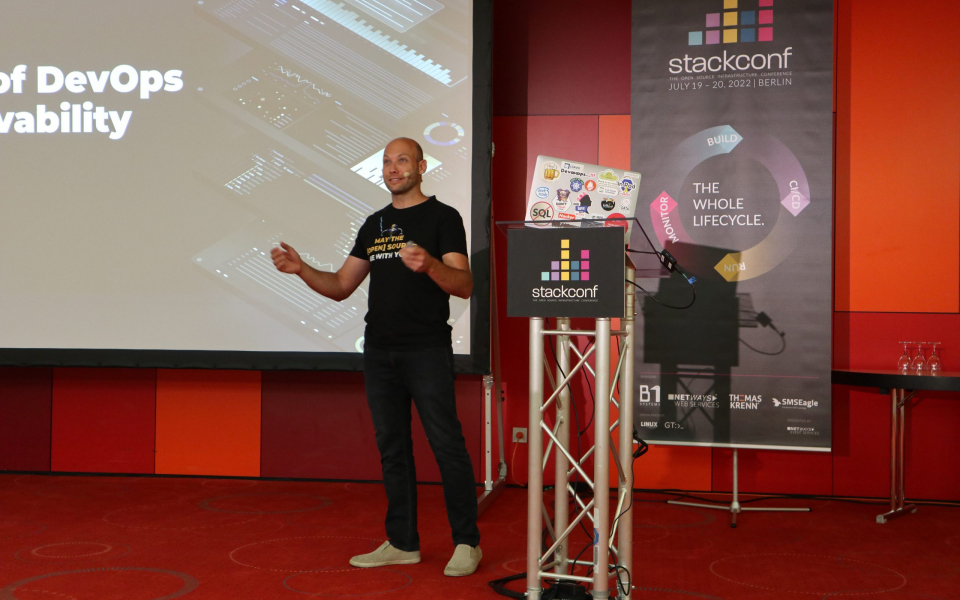
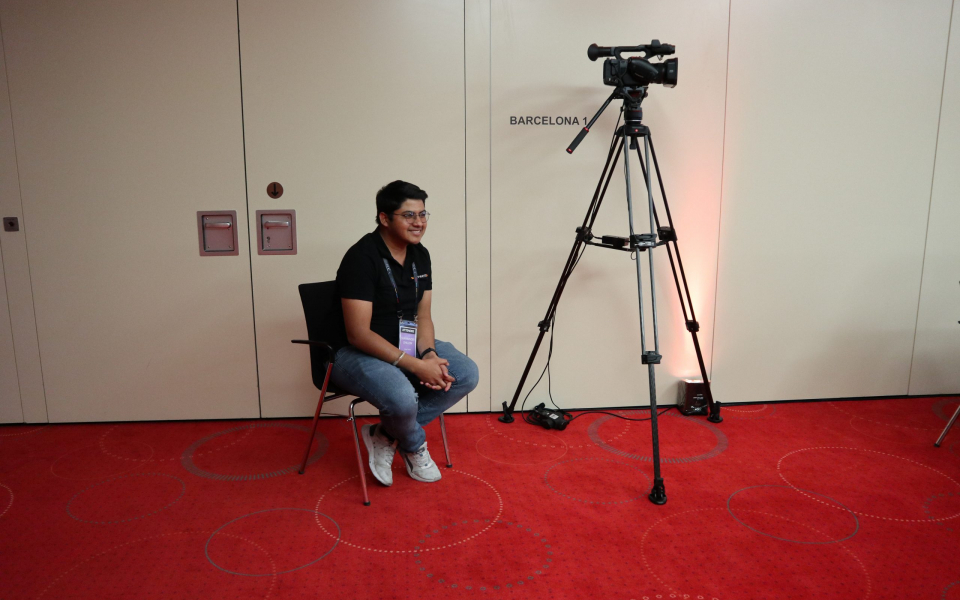
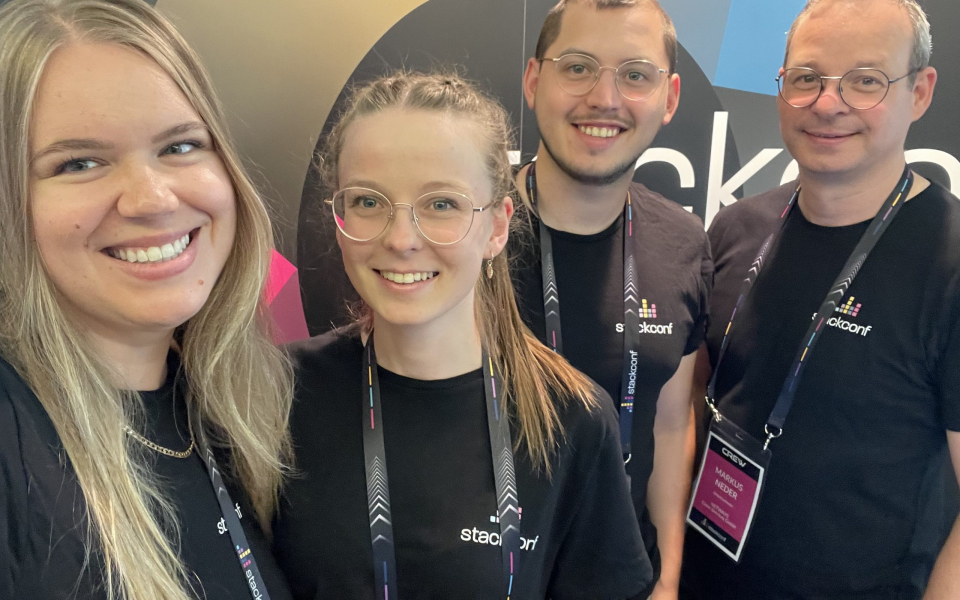





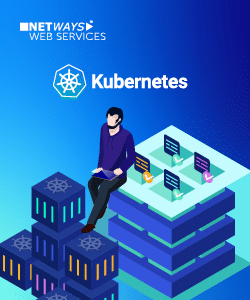

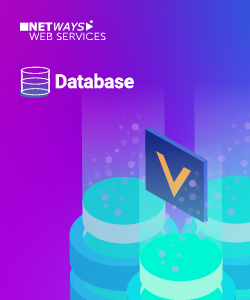

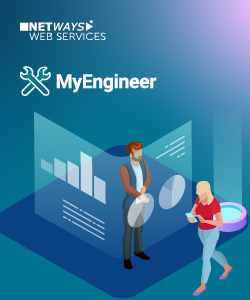







0 Kommentare